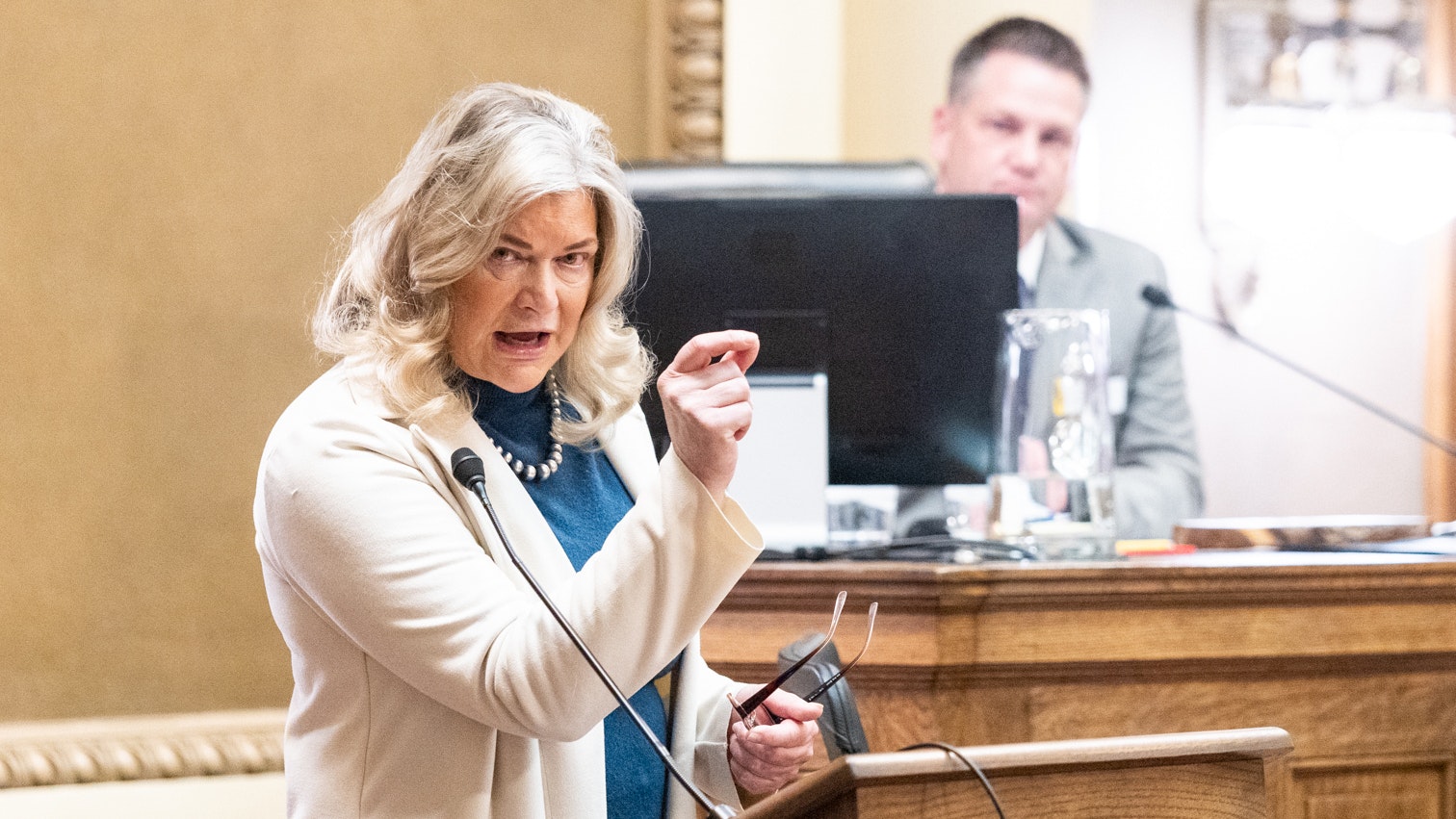Gov. Mark Gordon isn’t ruling out he may still have a future in Wyoming politics after his second term is over next year.
During a wide-ranging interview with Cowboy State Daily on Tuesday, Gordon was noncommittal about what his political future may hold.
“You never say never, let me just put that out,” Gordon commenting about the potential for running for office again. “I’ve never looked at this like you’ve got to get something achieved in a certain period of time.”
The possibility that Gordon might run for a third term has been a topic of speculation in Wyoming political circles for a number of months, which the governor has yet to rule out.
Secretary of State Chuck Gray, an outspoken critic of Gordon who also has rumored gubernatorial ambitions, said last summer he’s also heard chatter about Gordon running for a third term that he wouldn’t certify Gordon’s candidacy for a third term in office for the 2026 election.
Under Wyoming law, someone can serve more than two terms, but no more than eight years in a 16-year period, which effectively limits governors to no more than two consecutive terms. That law was passed by Wyoming voters in 1992, putting term limits on state public officials after former Gov. Ed Herschler served three terms from 1975-1987.
The term limits law was subsequently overturned by the Wyoming Supreme Court for members of the Legislature in 2004 and then overturned again in 2013 for the positions of secretary of state, treasurer, superintendent of public instruction and auditor. The Supreme Court did not address the governor position at that time.
As a result, Gordon would likely have to get this law clarified with the Wyoming Supreme Court to run for a third consecutive term.
Power To Veto
As governor, Gordon has the power to sign bills into law, let them pass into law without his signature, or veto them. The Legislature can only override his veto with a two-thirds vote.
Gordon told Cowboy State Daily he’ll be looking at certain criteria for deciding whether or not to veto bills that come out of the ongoing session.
• Is it constitutional?
• Does it erode state or local control?
• Does it interfere with personal rights or private property rights?
• Does it grow the state government or create significant ongoing costs for the state?
• What does it do to Wyoming residents?
• Does it weaken the state fiscally?
• Does it make Wyoming better for our children and grandchildren?
• Does it foster a good business climate?
Gordon said he doesn’t like to veto bills that meet these requirements and tries to work with the Legislature to make them salvageable.
Property tax cuts have been the biggest topic of the 2025 Legislature. Gordon vetoed the most substantial property tax bill brought during the 2024 session, which would have cut taxes by 25% statewide for Wyoming homeowners on properties up to $2 million in assessed value for two years.
Gordon stood behind his veto Monday, and said he did it for a “very conservative reason.” He pointed out that the bill would provide tax breaks for homeowners while providing backfill money for local governments from mineral revenues.
“I believe tax relief should go to those who pay taxes, I don’t think you cut taxes for one group of citizens and put that on another group of citizens,” he said.
He’ll likely see even more aggressive property tax cuts come to his desk this session, as two bills that would make 50% cuts are making significant headway so far. The topic of how backfills should be used with these bills has also been prevalent.
Gordon worries that the new crop of Wyoming legislators hasn’t truly experienced the lows of the state’s boom and bust economic cycles and are not properly planning for those scenarios.
“They’ve just been used to having different revenues coming in at prodigious rates,” he said.
Friends In The Cabinet
Gordon also expressed optimism about Wyoming's future and mentioned how former North Dakota and South Dakota Govs. Doug Burgum and Kristi Noem, and Colorado energy CEO Chris Wright, who he all considers good friends, and are now serving in President Donald Trump’s cabinet.
“These are all people who are going to play a large role in our energy production,” he said.
Gordon expressed some disappointment that national narratives have pervaded Wyoming politics but also said it’s understandable considering the “trauma” Wyoming went through under former President Joe Biden’s administration.
He believes now is the time for the Legislature to make policy decisions that will allow for energy growth, but has no illusions that the energy market will dramatically improve overnight.
“The policy implications and our opportunities to make the policies right for the long term, that’s where we’ve got to run hard and fast,” Gordon said.
Although Gordon has long embraced an “all of the above” energy policy, he believes enough wind energy has been pursued in Wyoming without needing to approve any more projects.
He wants to see more of a focus on nuclear, oil and gas moving forward, as well as embracing other small-scale entrepreneurial efforts. Gordon also believes the state needs to address housing shortages and it’s high rate of suicide.
“I’m not going to lose much time I hope in these last couple years of making a difference,” he said.
Leo Wolfson can be reached at leo@cowboystatedaily.com.





